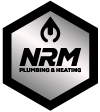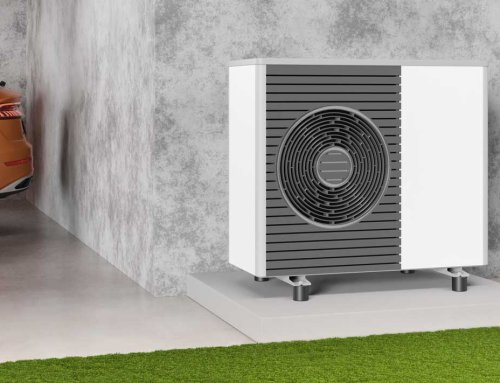Quick Navigation
- What is a combi boiler and how does it work?
- What is the difference between a combi boiler and a normal boiler?
- Which boiler type is best for my home?
- How much is a combi boiler in Ireland?
- Combi Boiler Grant Ireland
- Should I change my boiler type?
- Combi Boiler Installation
Many homes now take advantage of the benefits of using a combi boiler to heat water and to provide heating. Combi boilers can be a convenient and cost-effective part of your central heating system, but not everyone has made the switch.
What is a combi boiler and how does it work?
Even if you already have one, you may not really know much about your combi boiler & how it works. A combi boiler is a replacement for the older styles of boiler that can use much less energy and provide greater convenience for your household.
In a traditional heating system with a system boiler or conventional boiler, the boiler heats up the water, and the hot water is stored in a hot water cylinder. Once the water from the cylinder is depleted, more water must be heated to refill it – this means that you can run out of hot water and will need to wait for more to become available after the heating process.
In most cases, this is done through a timer, so it becomes a case of “first come, first served” and families will need to plan their water usage.
A combi boiler takes a different approach. The water is heated on demand, so when you turn on the tap, you may need to wait a few seconds for the water to warm up (the first water that comes out will have been sitting in the pipes to the tap and therefore will have cooled down). Once flowing, the hot water is available for as long as you need it.
If you only use a small amount of hot water, this can be very economical, as a whole cylinder-full of water does not need to be pre-heated. Similarly, it can be very convenient if you use warm water at different times of the day.
What is the difference between a combi boiler and a normal boiler?
Aside from the usage aspects of the boilers, there are physical differences between a combi boiler and other “normal” boilers. A combi boiler is more compact than other boiler types and is essentially a self-contained unit. The water is supplied to the combi boiler via pipes from the main water supply, and this serves both the hot water and central heating requirements.
A system boiler needs a cylinder to store hot water, while a normal boiler will need both a hot water cylinder and a cold water tank in the loft.
This means that combi boilers are easier to install and maintain as they involve fewer separate elements and less pipework around your home. In cold weather, there is potential that any tanks or pipes in your loft may suffer from the risk of freezing – this is simply not the case with a combi boiler.
Which boiler type is best for my home?
If you are still wondering which type of boiler is best, there are a few things to consider. First and foremost may be the running costs – in most usage situations, combi boilers can be cheaper to run, but more on that in a moment.
Combi boilers are smaller than other boilers and so may free up additional storage space in your home. However, regular boilers can supply (a limited amount) hot water to many taps at the same time. If you have multiple bathrooms in your home and your family tends to use them all at once, a combi boiler may struggle to supply all the required hot water simultaneously, but this is an extreme example. The majority of family homes will find a combi boiler to be more than adequate.
Choosing the correct size of your combi boiler is important for the efficient delivery of hot water. In this instance, size does not refer to the physical dimensions of the boiler, but rather the power of the boiler. Boilers are rated in kilowatts (kW), and a home with a single bathroom and around 10 radiators will need something in the region of 25kW. The larger the home (with more bathrooms and radiators), the higher the kW capacity needs to be.
How much is a combi boiler in Ireland?
The combi boiler price will be in part determined by the kW rating of the boiler, but other combi boiler costs will be related to the installation of the boiler. Pipework may need to be altered, radiators and heating controls may need replacing, and so on.
When you see a combi boiler for sale at a good price, make sure to consult a professional and qualified plumber to ascertain the true installation costs. The average combi boiler price can be between €500 and €3,000 depending on your requirements, but your plumber will be able to advise on the best choice for your situation.
Combi Boiler Grant Ireland
If your home was built and occupied before 2006, the Warmer Homes scheme and other grants may be able to help offset the cost of replacing your boiler. Different grants are available depending on your situation, including a Heating Controls Grant that not only reduces the cost of installation but also enables you to benefit from zoned heating and other technology that will reduce the overall cost of your heating.
Find out more at https://www.seai.ie/grants/home-energy-grants/
Should I change my boiler type?
In most cases, changing to a combi boiler will reduce your energy costs and provide a much more convenient solution for your family. Replacing an old boiler of any type will lead to greater energy efficiency as modern boilers are simply more efficient than their older counterparts. Further, the efficiency of a boiler will deteriorate over time, so replacing an old boiler with a New Gas Boiler Replacement is a must.
The decision to change should not be taken lightly, and it is wise to consult with an experienced plumber before making any changes to your heating system.
Combi Boiler Installation
At NRM, we are fully insured and qualified to safely offer a combi boiler installation. We are registered with both RGI and SEAI, and we are happy to advise on how to proceed with upgrades to your home central heating system. We also offer Gas Boiler Replacement Finance







